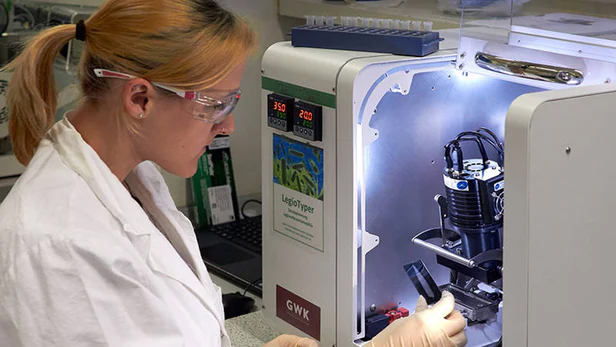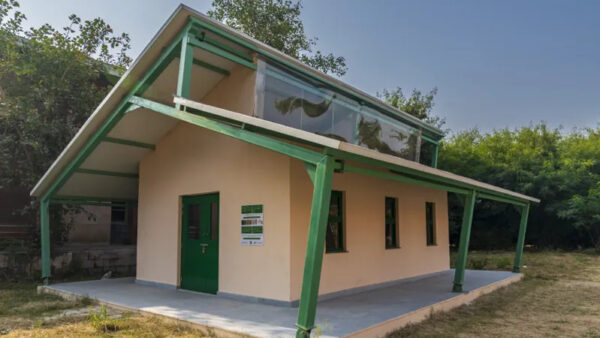Researchers at the Technical University of Munich (TUM) have developed a test for detecting the bacteria that causes Legionnaires’ disease in 35 minutes, as opposed to the 10-14 days presently required to breed a culture sample from suspect liquid.
The disease, which can be fatal, is caused by a type of the Legionella bacterium that can contaminate water tanks and rooftop cooling towers used for air-conditioning, making it an ever-present risk in buildings.

TUM scientist Catharina Kober works with the LegioTyper chip (Jonas Bemetz/TUM)
There are as many as 600 cases of Legionnaire’s disease in Germany each year.
With a near-instant test building managers will be able to detect the bacterium much more quickly and manage the risk better, the scientists say.
The “LegioTyper” works by bringing together 20 antibodies on a chip. Each antibody binds with a subtype of the Legionella pneumophila bacterium, which is the agent responsible for 90% of infections. If any of the antibodies finds a match in the sample, it causes the liquid to glow and alerts building staff to the presence of the disease agent.
Michael Seidel, the head of the Munich research team, said: “Compared with previous measurements, the new method not only provides a huge speed advantage but is also so cheap that we can use the chip in one-time applications.”
When Legionnaires’ disease is present in a building, it is usually in the rooftop cooling towers used for air-conditioning and can travel in water vapour. The availability of cheap, one-use tests should allow building maintenance staff to conduct more regular in situ testing of at-risk water reservoirs, and allow the rapid determination of which type of Legionella is present.
The origin of the outbreak is confirmed when the germs in the water of a building system exactly match those identified in the patient.
The Legionella bacteria are responsible for a type of pneumonia that can have a fatality rate of between 5% and 30%.
German Federal Ministry of Education and Research provided funding for the development of the “LegioTyper” chip.
A paper on the research was recently published in the journal Biosensors and Bioelectronics.






